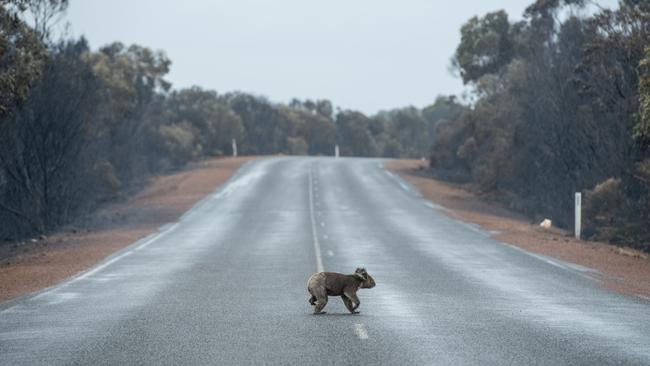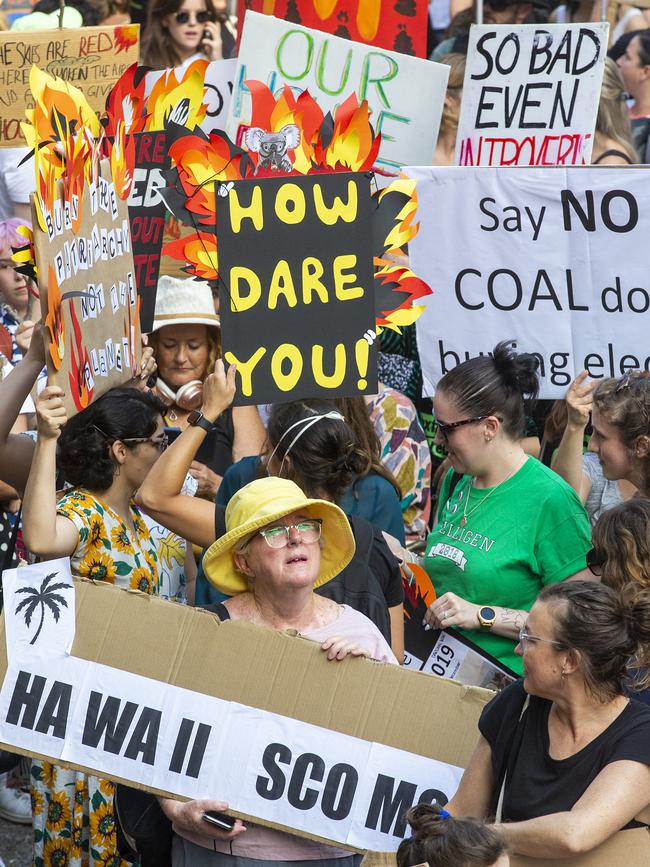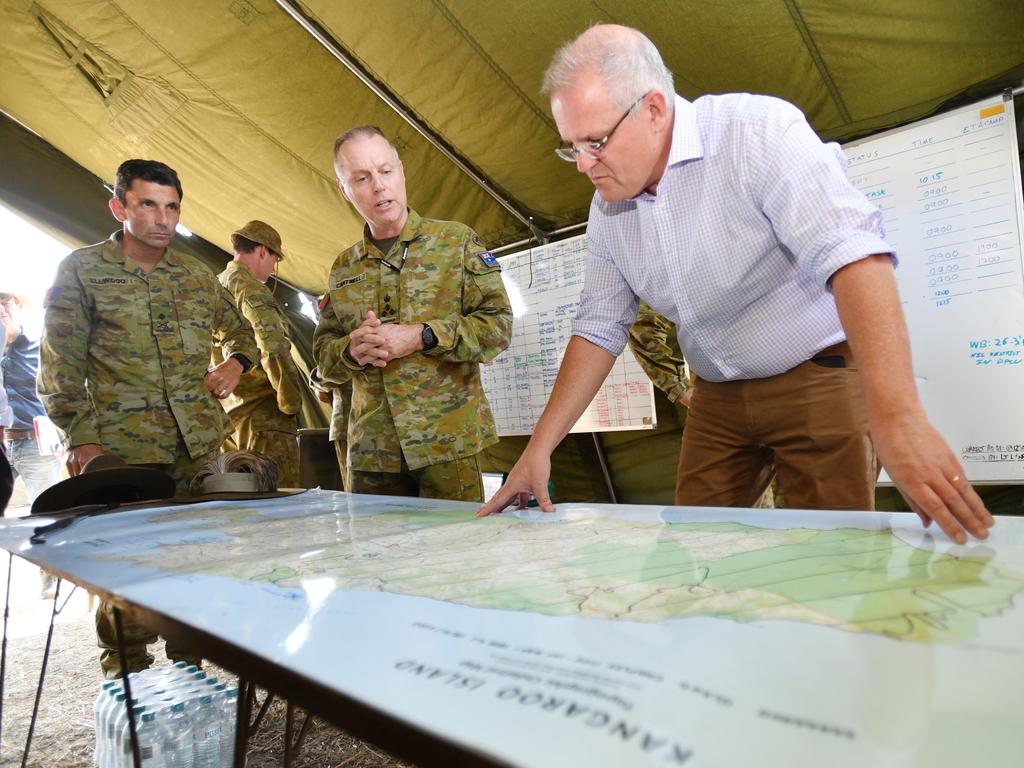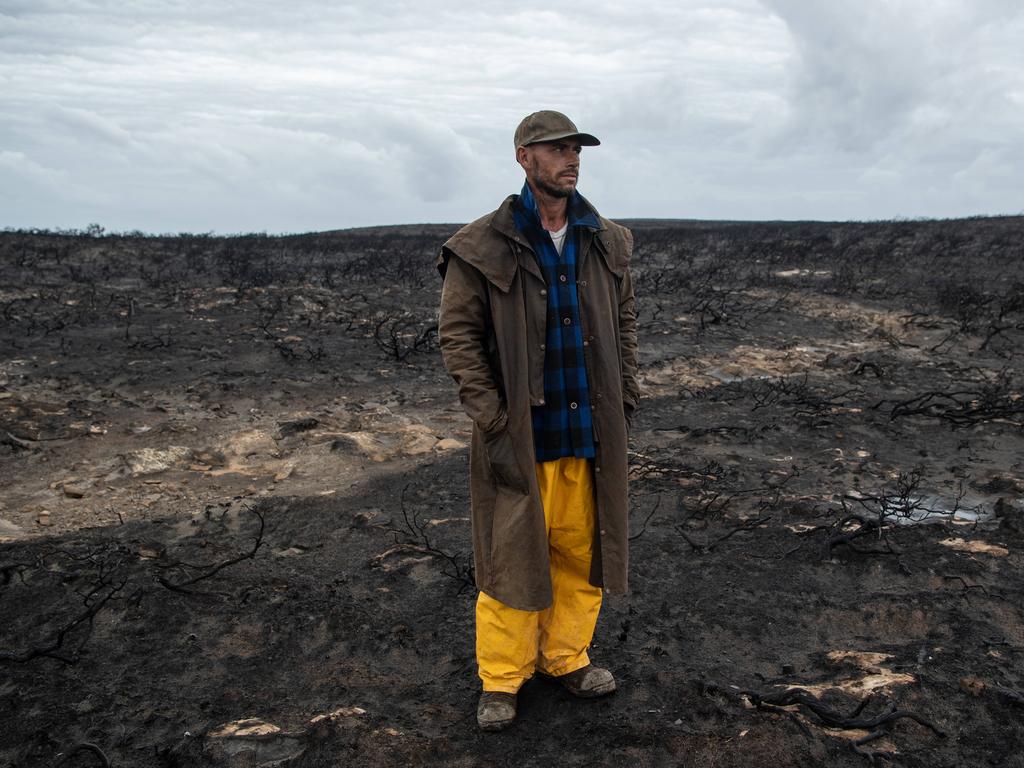Cool heads needed to craft response to bushfire crisis

Right now, social media is driving a campaign of outrage in which an alleged right-wing conspiracy of climate denialism is framed as the key obstacle on the path to a better future. For all the clicks, this represents few people and no constructive ideas. We should not allow noise to deafen us to this opportunity for a serious conversation. In evacuation centres, in cafes and kitchens, mainstream Australia is ready to talk about how to protect life, natural heritage and property in future bushfire seasons.

The evidence of global warming since the Industrial Revolution is clear. More intense fires are an observed reality consistent with the predictions of climate change science. In these pages in September, John Ferguson reported the outlook statement from the Bushfire and Natural Hazards Co-Operative Research Centre: “Its chief executive, Richard Thornton, warns there is significant research worldwide that fire seasons are starting earlier and generally getting longer (and the centre says) Australia is staring at a difficult fire season following above-average temperatures and the severe drought that is gripping large parts of the country.”
On Thursday, our environment editor, Graham Lloyd, quoted the Bureau of Meteorology’s head of climate monitoring, Dr Karl Braganza, on factors in current fire conditions: a record warm and dry year in 2019, including the influence of the strong positive Indian Ocean Dipole effect and a rare Sudden Stratospheric Warming event above the south pole. Bushfire experts have also pointed to the interrelated build-up of very dry forest fuel loads. We have reported this accurately, just as we have covered the well-attested role of arson in igniting fires, a risk that deserves more attention in times of climate change.

Scott Morrison has a recent electoral mandate and reservoir of goodwill to draw upon as he confronts this crucial challenge of leadership. There have been missteps since his Hawaiian holiday but it is what he does now that really matters. It seems obvious that anxiety about Coalition divisions over climate change action have made his response sometimes awkward and tentative, which manifests as an uncharacteristic lack of empathy and ordinary human touch.
Mirroring this disagreement on the right, Labor and the Greens have famously fallen out on how best to respond to climate change. But the Coalition is in government and, while internal conflicts are part of political life, it’s Mr Morrison’s responsibility to make sure they don’t get in the way of the national interest. As Prime Minister he should command discipline within Coalition ranks and project a clear resolve to do what has to be done on climate change and bushfires. We should continue to be a good international citizen by contributing to climate change mitigation while being pragmatic about global politics and preserving the economic strength that allows us to fund Australia’s adaptation to new ecological realities. We should aspire to global leadership in handling the transition to renewable energy, and be quick to exploit new technologies and unexpected fixes.

For Mr Morrison, it’s a question of restoring public confidence and countering misinformation by reminding people that Australia’s record on climate change action is good, and a firm basis for doing better. Ever since the Howard era, our governments have accepted the need to respond to global warming. And unlike many other countries, Australia has matched its rhetoric with credible actions to meet mitigation targets. From large-scale wind farms to rooftop solar, the growth in per capita renewable energy is well ahead of the rest of the world.
Yet Australia has become a scapegoat for climate activists frustrated by the failure to galvanise big global cuts in emissions.
In the local outrage, it’s become common to denounce as climate denialism any attempt to include non-warming factors in the mosaic of bushfire science. This represents the frail hope of progressive elites that if framed as an absolute moral imperative, climate action will break through and win universal support. But this is no substitute for the hard work of persuasion and coalition-building. The mainstream are worried about warming but they expect a prudent response alert to an inequitable burden of costs. And they will not be impressed by climate activists who refuse even to consider whether misplaced environmental opposition frustrates necessary fuel reduction by prescribed burning. Just how burning should be carried out has to be determined as a matter of science and judgment, not dogma. It’s clear more burning is needed, precisely because of the greater risks brought by climate change.
In our coverage, The Australian’s journalists report facts about how to tackle bushfires and about how to deal with the impact of climate change. Second, we host debates reflecting the political division that exists in Australia about how to address climate change without destroying our economy.
However, our factual account of bushfires, climate change and the remedies, as well as our editorial commentary on these issues, have been wilfully and ineptly misrepresented by The New York Times and Guardian Australia as climate denial.
The truth is that the political and media reaction to this devastating bushfire season is a bid to replay the May election and get a different result. There is a belief that The Australian — having predicted the result — is somehow complicit in driving policies that promote devastating bushfires. This is not only disingenuous but disgraceful.
Thankfully mainstream Australians are smarter than that.






The 2019-20 bushfire season has been catastrophic and it is not yet over. There is grief, fear and recrimination. These are inevitable human reactions to be worked through as we shift to the challenging task of crafting an effective long-term response to the crisis. That will require open debate, factual reporting and robust commentary. Our political class has to do its job of weighing all sensible options, relying on sound policymaking, lowest-cost technical solutions and can-do realism. This will be impossible without unfettered, credible journalism digging out the facts and bringing to light a wide range of informed viewpoints.